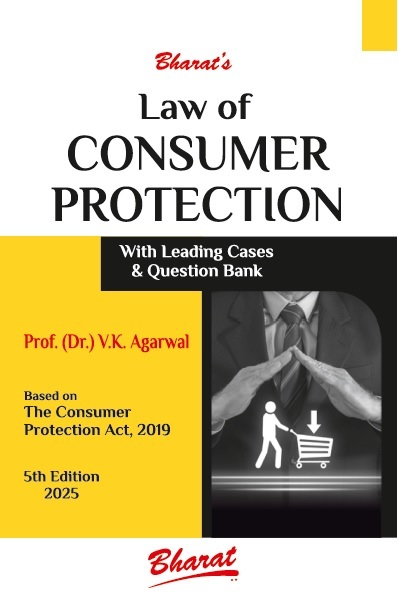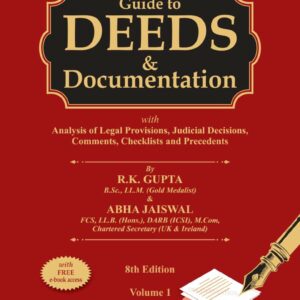Law Of Consumer Protection | Prof Dr V K Agarwal | Bharat Law House | Best Book with Leading Cases & Question Banks | 2025 |
Introduction
The Consumer Protection Act, 2019 was introduced in the Lok Sabha as a replacement of COPRA, 1986 on 8 July 2019 by the Minister of Consumer Affairs, Food and Public Distribution, Ram Vilas Paswan.[1] It was passed by Lok Sabha on 30 July 2019[2] and later passed in Rajya Sabha on 6 August 2019.[3][4][5]
The bill received assent from the President Ram Nath Kovind on 9 August, and was notified in The Gazette of India on the same date.[6] The Act came into effect by 20 July 2020, while certain other provisions of the Act like establishing the Central Consumer Protection Authority came into effect from 24 July 2020.[7][8]
-
- Protects consumers from unfair trade practices, defective products, and poor services
- Provides a way for consumers to file complaints and receive compensation.
- Encourages consumers to speak up about issues with products and services.
- Helps consumers resolve disputes quickly.
- The act establishes consumer councils and other authorities to settle disputes .
- The act sets up a three-tier machinery for filing complaints, including District Forums, State Commissions, and the National Commission .
- The act provides legal rights and remedies to consumers.
- The Consumer Protection Act of 1986 (COPRA) was passed in 1986 and came into force in December of that year.
- It was replaced by the Consumer Protection Act of 2019.
Councils, Authorities and Commissions established
[edit]
This act is also focused on continuing the formally defined institutions created by the COPRA,1986 to take up cases and decisions related to consumer protection. It allows the central government to move away the burden of establishing consumer protection laws from the parliament and the burden of litigation from the courts; by providing an alternate pathway for the governments and citizens alike to approach, deliberate, discuss and decide on matters related to consumer protection in the interest of consumers.
Consumer Protection Authority (Body)
[edit]
This act also allows for the establishment of independent statutory authority bodies on both the levels of the centre and the state to have jurisdiction over consumer protection law and cases. These bodies have a wide range of powers, including but not limited to search and seizure, declaration of judgements, protection of good-faith decisions. These bodies have formal internal structure with their own investigative wing to conduct research into a particular case.
They have the right to recall goods, refer the matter to other regulators for investigating a case on all fronts, to issue directions and penalties against false or misleading advertisements.
Consumer Disputes Redressal Commission (Body)
[edit]
This act allows for the creation of commissions to which consumers can approach and place their concerns on the levels of the district, state, and centre. They function in a manner similar to the courts, and have complete jurisdiction over declaration of case judgements. Their function is similar to ones defined in the COPRA, 1986.
Consumer Protection Councils (Body)
[edit]
The job of the body is to advise the central government and the prime minister on issues to be mitigated and policies to be made regarding consumer protection.
Rights of consumers
[edit]
The consumer protection bill 2019 primarily defines the following consumer rights.
- Be protected against marketing of goods and services which are hazardous to life and property.
- Be informed of the quality, quantity, potency, purity, standard and price of goods and services.
- Be assured of access to a variety of goods or services at competitive prices.
- Seek redressal against unfair and restrictive trade practices.[11]
Prof Dr V K Agarwal | Bharat Law House | Best Book with Leading Cases & Question Banks | 2025 |




Reviews
There are no reviews yet.